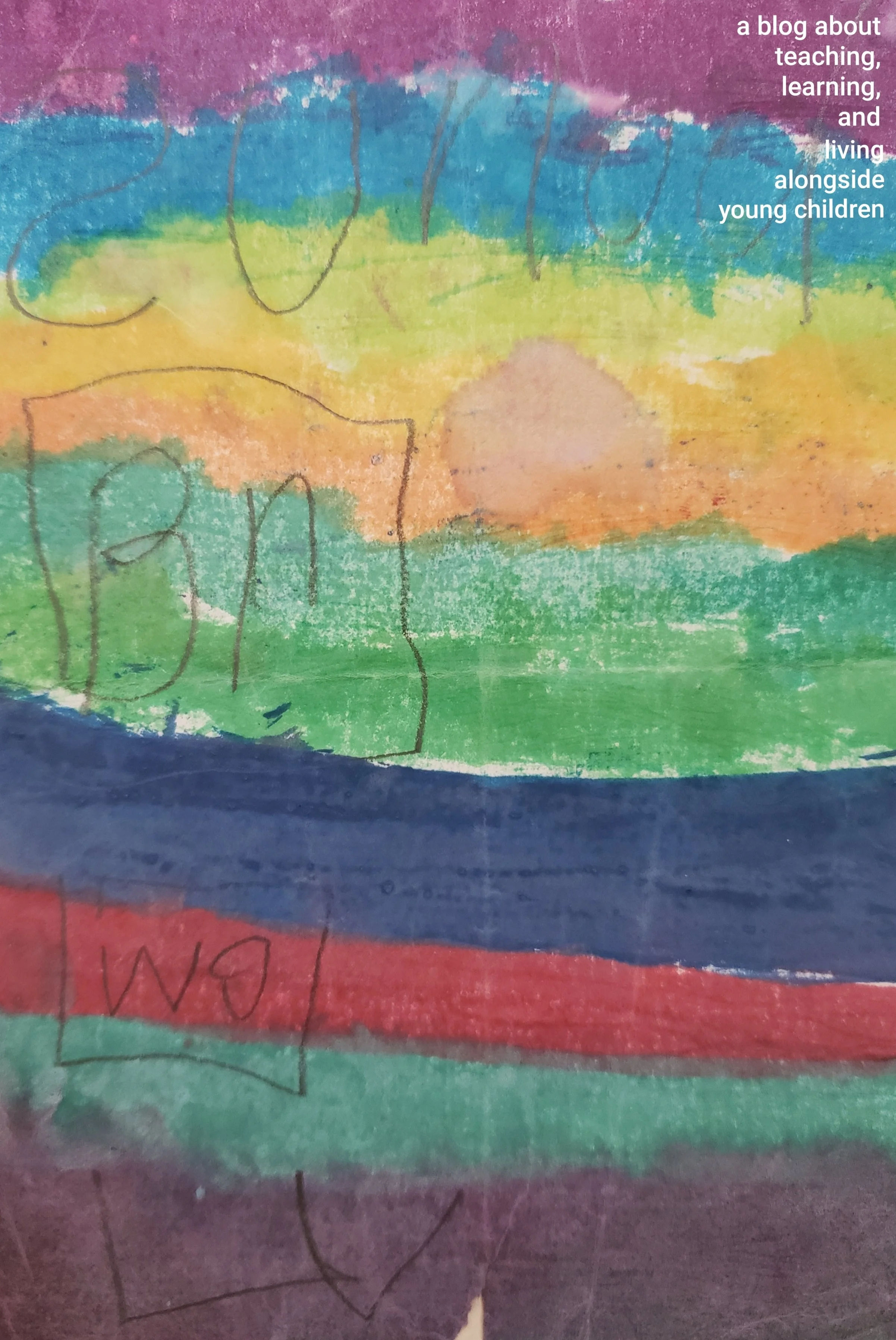Practice, Not Magic: Toileting Regression
/Illustrated by Leia O., age 5.
Practice, Not Magic is a series of posts about the practical aspects of living alongside young children. Focusing on one vignette, we can parse out the developmental from the situational and how to think through common dilemmas faced by parents, teachers, cool aunts, chosen family, et al. The principles below can be adapted for either home or the classroom, but are a guide for thinking, not a prescription.
Issue to work through: A child who has previously been successful with toilet learning begins having frequent accidents again. For this example, this child is around three and has an accident every day when they get home.
Potential cause of behavior: Toileting regression can often be linked to periods of change or transition in a child’s life, including situational, environmental, or developmental shifts. For preschool-age children, this is a sign of developmentally appropriate grappling with stress, change, or power/control over self and relationships.
In general, these are not factors that a very young child can express. Bathroom accidents are physiological responses to the complex logistical, cognitive, and emotional complexity of learning about and living in the world. Young children are tasked with developing so many parts of themselves simultaneously - it is reasonable for the child (and the caregiver) to get stuck or overwhelmed occasionally. As a preschool teacher, I often find that a child facing setbacks in toileting is also undergoing a change in routine or caregiver at home. While obvious changes, like moving to a new house or school, are common, more subtle changes can also trigger those setbacks: time change, moving to a new bed, anticipation about kindergarten months in advance, etc. Sometimes, just the fact of children’s physical and intellectual development can cause toileting regression. As a child’s perceptual skills develop, so too does their sense of personal power and experimentation: Hmm, I have this mysteriously powerful new thing called, “No.” What happens if I just don’t go to the bathroom? Wow! Every time this happens my grownups run right over…and now I get to wear my green pants!
Possible Solution: Toileting regression and the contributing circumstances are issues we tackle separately while keeping the larger goal of realistically learning to live together in mind. It is most important to remember that there is no blame for regression - there is the developmental reality to which we respond at the moment and the larger changes we can make to alleviate circumstantial tension. For the actual cleaning up, allow the child to be as independent as possible while the adult remains a neutral, adjacent supporter. The experience of changing should be as successful as possible while also allowing it to remain reasonably inconvenient to the child, rather than just the adult, to have multiple accidents per day. We can support the child’s other need for other kinds of care and attention at a more appropriate time.
What this solution might sound like:
Dealing with the accident in the moment:
Child: I had an accident.
Micah: Okay, let’s head to the bathroom. Here are some clothes. (Clothes can be pre-selected and prepared in the bathroom cabinet if choosing often becomes a power struggle) I’ll wait over here while you get dressed.
Child: I need help.
Micah: Okay, I can support you with my words, but you will need to practice wiping and pulling up your pants. The wipes are on the counter. You can use the mirror to see your body.
Child: I can’t.
Micah (coaching through steps, calmly normalizing challenges): You can. It can be frustrating to change. Practice will make it easier. Try using two hands to pull up the pants.
Dealing with/contextualizing the larger circumstances:
(The next day, arriving home) Micah: I have a really special job for you. We are making salad for dinner and I wonder if you might wash and rip the lettuce leaves for us?
Child: Okay!
Micah: Okay, let’s both use the bathroom and drink some water to take care of our bodies before we start. I am so excited for us to make dinner together!
(If/when the child has another accident, repeat the steps above, but do not equate the toileting problems with the special time you spend together. Stay matter-of-fact, nonjudgmental, and supportive of their own competence)


